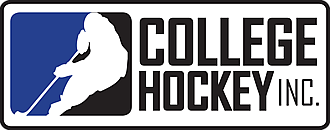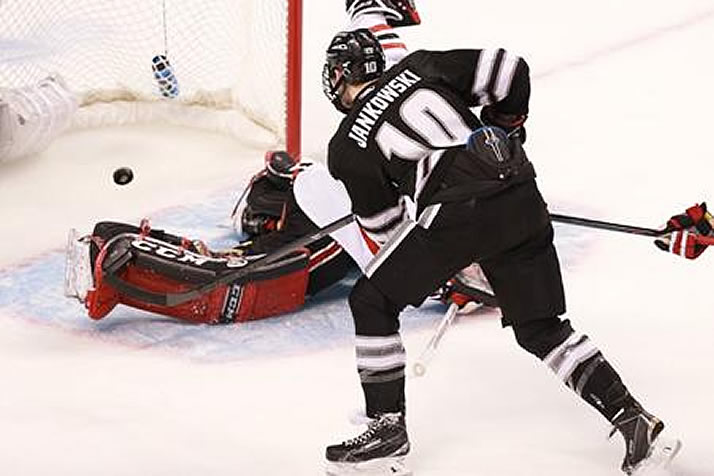


For many rising juniors and seniors, NHL development camps offered an opportunity to showcase their games and to gather momentum for the upcoming college season.
Development Camp Infographic | Sortable List of Participants
Several, like Hobey Baker finalist Jimmy Vesey of Harvard, had the chance to turn pro after last season but chose to spend another year developing at school. Camp gave those a chance to discuss that decision.
"At the end of last year I could have joined the Preds for the playoffs," Vesey told NHL.com. "That was something that I had thought about a lot. I think that I'm ready to turn pro, but there is still room for improvement for me and college is a good environment to do that in. We don't play as many games, but we have a lot of time at practice and in the weight room so I can really focus on getting stronger and faster and rounding out my game."
Others might not be ready for the challenges of pro hockey, and know that they can continue to grow in college. Flames first-round pick Mark Jankowski, one of the most improved players in the NCAA during his first three years at Providence, enters his senior season poised to be a top player for the defending national champions.
Former Clarkson star Craig Conroy, now an assistant general manager with Calgary, understands the importance of that patience first-hand.
"I know for me, I went to college and then at (age) 22, 23 and 24 I really felt like I was hitting my stride comfortably,” Conroy told NHL.com. "I couldn't have played at 18, (to) have Sam Bennett do that or Sean Monahan, it's pretty special. But even with [Gaudreau], it took him those three years and he dominated in college and got to the point where college was too easy for him now and we had to move him on, and look what he did last year (24 goals, 40 assists, Calder Trophy finalist).
"With Jankowski, we want to make sure we do the right thing with him and not rush him. Just because he's a first-round pick doesn't mean he needs to play right away.”
Returning juniors and seniors also understand that they will have leadership opportunities that they aren’t likely to see again for several years once they turn professional. Michigan senior Boo Nieves, who will be an assistant captain this year, and Minnesota junior Hudson Fasching are two upperclassmen who hope to add to their leadership skills.
“College hockey still has stuff to offer me. Being an older guy – I’ve never really been an older player on any team I’ve ever been on,” Fasching said to the Buffalo News. “Growing up, I was always the youngest kid on the team and I fit into that role. I never really grew to understand leadership or how to really fulfill that.
“For me, this year is about growing – not only as a player, but also as a person and a leader.”
All of these veteran players come to camp knowing that the chance to play pro hockey is much closer than it was two or three years ago, when they were entering college.
“I think physically I’ve developed quite a bit,” Cornell senior Reece Willcox told the Philadelphia Flyers’ web site. “Off the ice workouts during my three years at University has helped me grow as a person. My defensive game has also come along.
“I think academically, the challenges of managing a University curriculum as well as being a student athlete at the same time is pretty difficult. I think I’ve grown as a person being able to manage both of those effectively.”
Another ECAC Hockey defenseman echoed those thoughts.
“I feel faster. I feel more explosive,” Boston Bruins draft pick Rob O’Gara, who will be a senior at Yale, said in the Boston Globe. “You can go in with more confidence, knowing you’ve put the work in and you’ve done this a million times before. Having that mind-set can raise your game another level. Last year, I felt the best I’ve ever felt in hockey.”